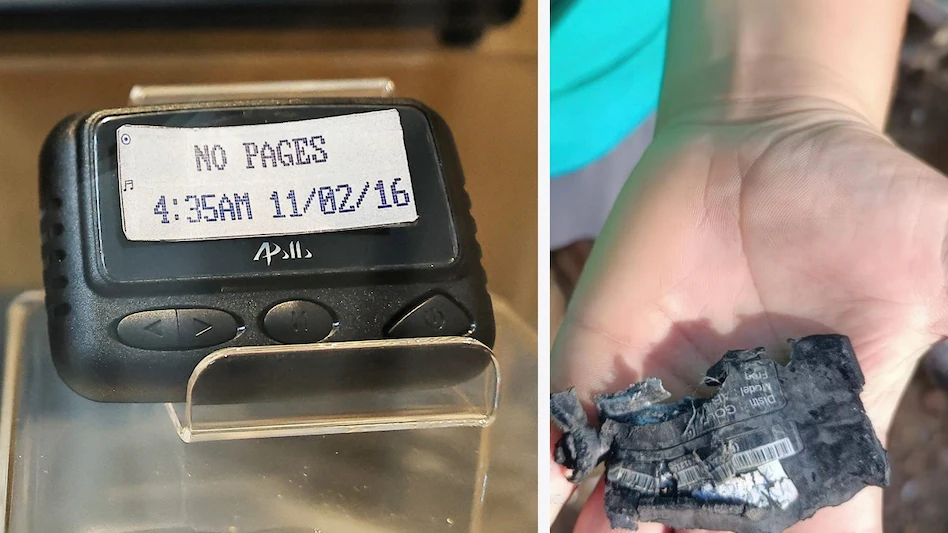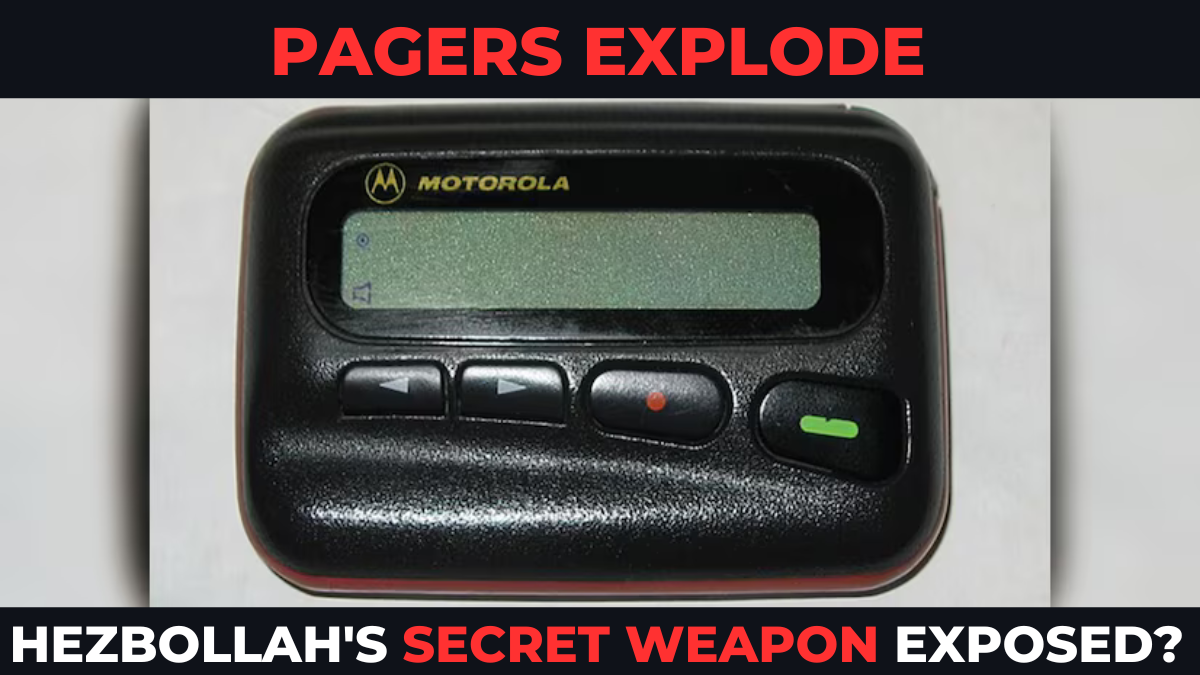
What are Pagers and Why Hezbollah Still Relies on Them: A series of pager explosions in Lebanon recently made headlines, killing 9 Hezbollah members and injuring over 2,750 people. Once a widely used communication tool in the 1980s, pagers are now in the spotlight for tragic reasons. Here’s everything you need to know about pagers, why Hezbollah still uses them, and what caused the deadly blasts.
The Tragic Incident: Pager Explosions in Lebanon
Hezbollah is reeling from a series of coordinated mini-explosions that targeted their fighters’ communication devices—pagers. The blasts, which occurred around 3:30 pm (1230 GMT), left 9 Hezbollah members dead and thousands injured. In a public statement, Hezbollah blamed Israel for “rigging” these pagers with explosives, though no official claim has been made by Israeli authorities.
Lebanese media reported that Israeli intelligence agencies were behind the attacks, which impacted both Hezbollah fighters and civilians. The wave of explosions was captured on CCTV across Lebanon, shocking the global community and prompting widespread condemnation. Many social media users likened the attacks to “science fiction,” while others questioned why pagers are still being used for communication.
What Are Pagers?
Pagers, also known as beepers, are wireless communication devices that first gained popularity in the 1980s. Patented in 1949 by Alfred J. Gross, these devices receive and display alphanumeric or voice messages via radio frequencies. Unlike modern smartphones, pagers primarily alert users with tones, beeps, or vibrations, making them useful in noisy environments or places where silence is essential, like hospitals.
Why Are Pagers Still in Use?
Though mobile phones have largely replaced pagers, these devices remain in use for specific purposes. Emergency services, public safety personnel, and some professionals continue to rely on pagers due to their reliability and coverage. Unlike cellular networks, which can fail during natural disasters or power outages, pagers operate on terrestrial-based systems, providing a stable communication method even in crises.
For Hezbollah, pagers offer an added layer of security. The devices leave a smaller electronic footprint compared to smartphones, making them less vulnerable to hacking or surveillance. Additionally, pagers work in areas with poor mobile coverage and are not dependent on internet or cellular networks, which aligns with Hezbollah’s operational needs.
Why Does Hezbollah Use Pagers?
Hezbollah, a paramilitary group with heightened security concerns, uses pagers for internal communication due to their discreet nature. These devices are harder to trace than mobile phones, making them an ideal choice for sensitive operations. Pagers are also simple to use and provide a longer battery life than smartphones, allowing them to function for days on a single charge.
Despite their advantages, the recent explosions have raised concerns about the safety of using such devices. Any electronic gadget with a battery can explode due to factors like manufacturing defects, battery failure, or exposure to extreme conditions. However, in this case, reports suggest that Hezbollah’s pagers were tampered with to contain hidden explosives.
How Pagers Work: A Technical Overview
Pagers operate on dedicated radio frequencies, sending and receiving messages through a central dispatch or base station. The range of these devices depends on the frequency band and the paging network’s coverage area. Unlike mobile phones, pagers don’t require a constant connection to a cellular network, which contributes to their reliability in certain professional settings.
What Caused the Pager Explosions in Lebanon?
According to an anonymous Hezbollah official, the explosions were part of a targeted security operation. It is believed that Israeli intelligence intercepted a batch of pagers destined for Hezbollah members, inserting explosives that could be remotely detonated. The hidden explosives were activated, causing the tragic blasts that killed and injured both fighters and civilians.
Lithium batteries, commonly used in electronic devices, are known to overheat and explode under extreme conditions. However, reports confirm that the pagers in question had been rigged with explosives, making this a coordinated attack rather than a mere battery malfunction.
Conclusion
The tragic pager explosions in Lebanon have sparked renewed interest in these once-dominant communication devices. While most people have moved on to smartphones, pagers remain a vital tool for certain groups, including Hezbollah, due to their security and reliability. However, this incident serves as a stark reminder that even seemingly outdated technology can be weaponized in modern conflicts.
